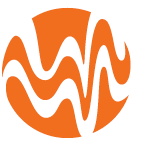Wisconsin Water Thinkers Network Updates
 Jeremy Solin
·
3 minute read
Jeremy Solin
·
3 minute read
A few updates on the Wisconsin Water Thinkers Network (WWTN):
We have formed the leadership team to guide and promote the work of the WWTN moving forward. The team members are:
- Mary Pardee, Polk County UW-Extension
- Liz Sutton, UW-Milwaukee School of Freshwater Sciences
- Elizabeth Thelen, The Water Council
- Huda Alkaff, Wisconsin Green Muslims and Interfaith Alliance for the Earth
- Joe Van Rossum, UW-Extension Natural Resources Educator
- Katie Connolly, Hunt Hill Audubon Center
- Deidre Peroff, Wisconsin Sea Grant
- Meredith Keller, Wisconsin Academy of Sciences, Arts and Letters
- Val Damstra, Northland College
- Aaron Thompson, UW-Stevens Point, College of Natural Resources & UW-Extension
- Tony Janisch, Bad River Watershed Association
- Janice Kepka, UW-Madison, College of Ag and Life Sciences (CALS)
- Stephanie Prellwitz, Green Lake Association
The leadership team will be meeting in the next couple weeks to begin refining the vision-mission of the WWTN and identifying the communication platform and activities of the Network. I expect things will progress pretty rapidly through the spring and summer so watch for more updates.
Here are a few upcoming events from members of the WWTN that might be of interest:
Milwaukee Water Commons' Confluence Gathering
Thursday, May 12th, 5-8pm
Best Place at the Historic Pabst Complex - 901 W Juneau Ave, Milwaukee
FREE and open to all!
Milwaukee Water Commons has lead a process over the last two years in which over 1300 people have helped shape a vision of Milwaukee as a true water city - a city in which everyone would participate in the care and enjoyment of our waters. We've shaped this into a 2016 Water City Agenda, and when you join us on May 12th, you’ll see this vision first hand and find your place in the plans for moving it forward. There will be arts and music, video and presentations, hands-on activities and delicious food in a historic and absolutely gorgeous setting. You’ll meet lots of other Milwaukeeans who, like you, are ready to make this place what we want it to be. https://docs.google.com/forms/d/1dFTEbNgxqL3BScxcUyRcXEC9dpzL-MsFOoj5LCmzbBs/viewform
Great Lakes Communications Workshops: How to Use Latest Public Opinion Research to Effectively Advocate for the Lakes
Learn how you can play a role in the national effort to restore and protect the Great Lakes—a resource that millions of people depend on for their drinking water, jobs, and way of life. Please join us to learn how to effectively communicate about the need for restoration and protection.
Join us and learn how you and your organization can help build support for federal investments to restore the lakes and better our communities. Workshop topics will cover:
• Latest public opinion polling data from around the Great Lakes region
• How to effectively communicate about Great Lakes restoration
• How to answer tough questions
• How to use social media to advance your advocacy goals
• A tool kit with tips and template materials
These workshops are free and open to the public. More information about the meetings, including specific locations and RSVP information can be found here: http://www.healthylakes.org/2016-tour.
Science, Policy & Water: A Waters of Wisconsin Summit
Tuesday, May 10, 8am to 5pm
UW-Madison Union South
Water defines life in Wisconsin, supporting our economy and enriching our quality of life. But how do we protect the health of Wisconsin’s waters and people? How are we crafting policy to address today’s water challenges? In particular, what roles do scientific research and knowledge play in informing these policies?
The goals of the summit are:
- To be a “de-polarizing” conference that models civil discourse on the interconnections between water, science, economics, health, climate, agriculture, and, ultimately, how science can better inform policy; To identify challenges and needs, especially as related to science and water-related concerns in Wisconsin; and, To bring scientists and policymakers together to explore ways to work more effectively together, and to openly discuss trends and findings that require public response.
This event is open to the public, and we welcome a diverse audience to enrich the discussion.
http://www.wisconsinacademy.org/content/science-policy-water-waters-wisconsin-summit
Alliance for Water Stewardship Training
Milwaukee April 26-28
Are you looking to mitigate water-related risks at your sites or even within your supply chain? Do you need a strategic framework to help identify water risks and opportunities and then put an action plan into place to address those risks and opportunities? If so, check out the three-day Alliance for Water Stewardship (AWS) training to be held at the Global Water Center in Milwaukee, WI from April 26-28. After the training you will be equipped to advocate for corporate water stewardship and implement the International Water Stewardship Standard (“AWS Standard”) at sites within your organization (industrial, agricultural or municipal). If you are interested in becoming an AWS accredited trainer, consultant or auditor, the AWS Specialist training on the third day is just for you. Email AWS-North America for more information or visit www.awsnorthamerica.com.
Register for the training at https://www.eiseverywhere.com/ehome/index.php?eventid=170671&. The Registration link contains training flyers and venue and logistical information. Discounts are provided for multi-day registrants and non-profits.
ThinkWater Systems Thinking Workshop
At the end of April, ThinkWater will provide a workshop for the staff of the Urban Ecology Center. The workshop will introduce systems thinking as a tool to understand and change our own thinking and to better communicate with and educate others. Resources to integrate systems thinking into program delivery and organizational development will be provided. This workshop will be similar to a workshop recently held at the Lakes Partnership Convention. If you are interested in a workshop for your staff or community, contact Jeremy Solin. The workshops are offered for free thanks to funding from the USDA.
If you have any upcoming events you'd like me to share with the Network (while we get our communication platform established), let me know.
Jeremy Solin, Wisconsin ThinkWater Coordinator
UW-Extension Cooperative Extension, Program Development and Evaluation
jeremy.solin@ces.uwex.edu l 715.340.0376 l www.thinkwater.us
.png?width=150&height=150&name=CRL%20GOAT%20Logo%20(4).png)


